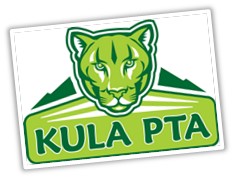Kula School Community Council (SCC)
The role of School Community Councils is to
improve student achievement and
enhance the accountability of the education system to the public.
Kula School SCC information
Kula School SCC members are: TBD
SCCs membership must be 50% school staff and 50% parents, students and community members.
Kula School SCC meetings are held: TBD
SCCs membership must be 50% school staff and 50% parents, students and community members.
Kula School SCC meetings are held: TBD
Hawaii SCC information
Hawaii School Community Councils were created in 2004 to allow greater educational decision making at the school level and increase the involvement of those directly affected by the decisions. The expected results of SCCs are increased accountability, school improvement and student achievement.
School Community Councils are forums for exchanging ideas about how to improve student achievement among the school’s stakeholders: principals, teachers, school staff, parents, students, and community members.
School Community Councils are a major part of the overall leadership structure at each school. They are a group of people who are elected by their peers to advise the principal on specific matters that affect student achievement and school improvement. Their primary role is to participate in the process that ensures that the needs of all students are specifically addressed in the overall education plan for the school. The Academic and Financial Plan is a document that highlights the goals for the school, the programs, and the available resources to reach these goals.
School Community Councils are forums for open discussion and problem-solving related to student achievement. Recent research suggests that when done well, this process contributes to improved school culture and a strong professional community of educators. In addition, effective decision making supports improved classroom practice and student learning. These results indicate that democratic structures like School Community Councils are integral to school and student success.
The Hawaii State Board of Education and Hawaii State Department of Education recognize these research findings and have developed policies to support School Community Councils based on three common-sense principles:
(This information came from http://reach.k12.hi.us/empowerment/scc/scchandbook.pdf.)
School Community Councils are forums for exchanging ideas about how to improve student achievement among the school’s stakeholders: principals, teachers, school staff, parents, students, and community members.
School Community Councils are a major part of the overall leadership structure at each school. They are a group of people who are elected by their peers to advise the principal on specific matters that affect student achievement and school improvement. Their primary role is to participate in the process that ensures that the needs of all students are specifically addressed in the overall education plan for the school. The Academic and Financial Plan is a document that highlights the goals for the school, the programs, and the available resources to reach these goals.
School Community Councils are forums for open discussion and problem-solving related to student achievement. Recent research suggests that when done well, this process contributes to improved school culture and a strong professional community of educators. In addition, effective decision making supports improved classroom practice and student learning. These results indicate that democratic structures like School Community Councils are integral to school and student success.
The Hawaii State Board of Education and Hawaii State Department of Education recognize these research findings and have developed policies to support School Community Councils based on three common-sense principles:
- Individuals closest to the students should be more involved in making significant decisions affecting the instructional program of the school.
- A school plan to improve student academic achievement receives more support when people understand and help create that plan.
- When families participate in a variety of ways in their children’s education, including decision-making, their children and the school are more successful.
(This information came from http://reach.k12.hi.us/empowerment/scc/scchandbook.pdf.)
